‘It’s time to act’: Biden freezes new oil and gas leases, scraps fossil fuel subsidies as part of historic climate change action
President Biden took sweeping executive action Wednesday to cut back on fossil fuel production and usher in a new era of renewable energy as part of one of the most aggressive efforts to fight climate change in American history.
The most immediate impact of Biden’s blitz of executive orders is a directive for the Interior Department to halt the issuance of new leases for oil and gas production on federal lands and offshore waters. The order also tasks the department with reviewing all existing federal oil and gas contracts, with the hope of ridding the energy sector of fossil fuels entirely by 2035.
“We have already waited too long to deal with this climate crisis,” Biden said in the State Dining Room of the White House before signing the orders. “We can’t wait any longer. We see it with our own eyes. We feel it in our bones, and it’s time to act.”
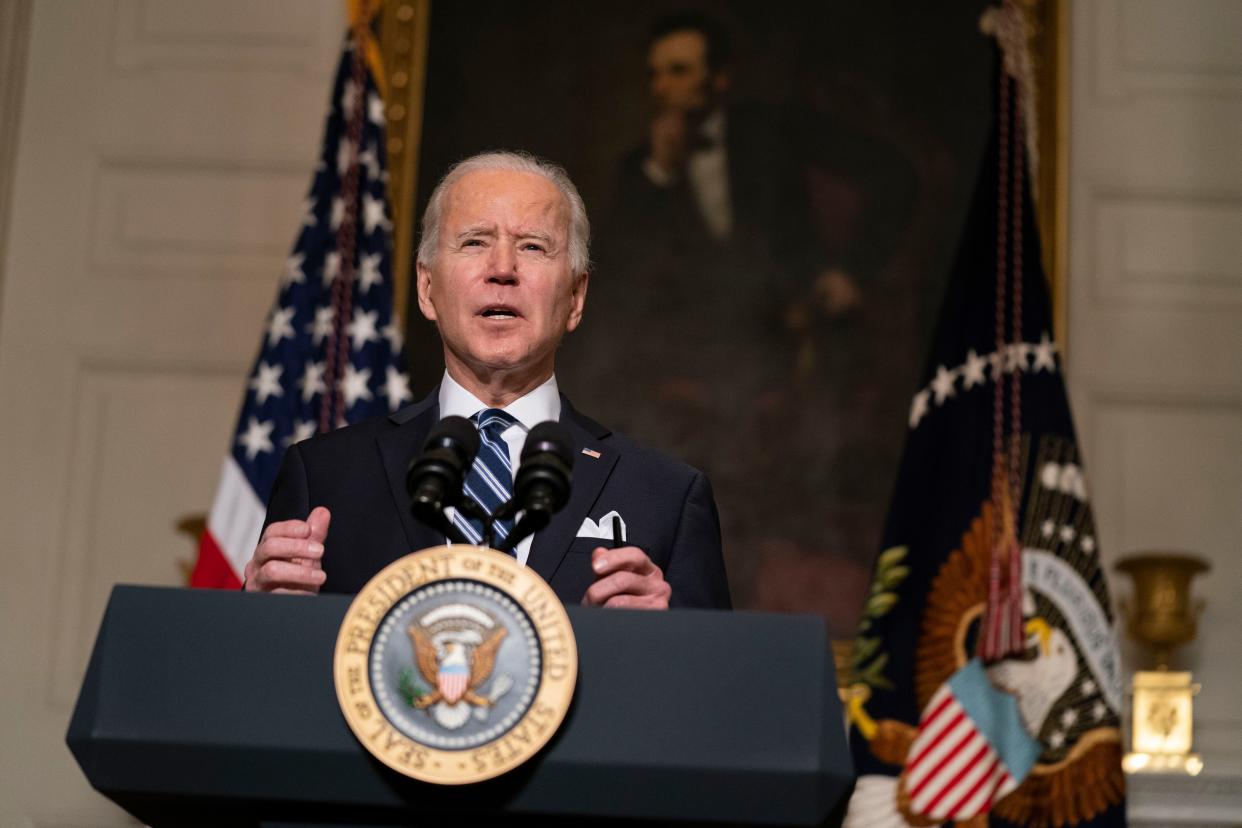
In addition to freezing new contracts, Biden is directing government agencies to scrap federal subsidies for fossil fuel drilling — incentives that he said nets producers $40 billion every decade — though he acknowledged he may need help from Congress to end the spending entirely.
The pause on drilling does not impact private lands, which are mostly regulated by states, and Biden’s executive order also exempts tribal lands from the pause.
The long-term goal of Biden’s actions is to bring greenhouse gas emissions in the U.S. to net-zero by 2050, and he said he’s hosting world leaders for a “climate summit” this April to get them onboard.
Biden’s orders also label climate change a national security threat, allowing the entire federal government to get involved in the fight — marking a sharp contrast from ex-President Donald Trump, who mocked climate science and expanded fossil fuel production on federal lands.
John Kerry, the former secretary of state tapped as Biden’s climate change czar, said international cooperation will be key.
“The stakes on climate change just simply couldn’t be any higher than they are right now. It is existential,” Kerry said in a briefing before Biden’s announcement. “But we have a big agenda in front of us on a global basis, and President Biden is deeply committed.”
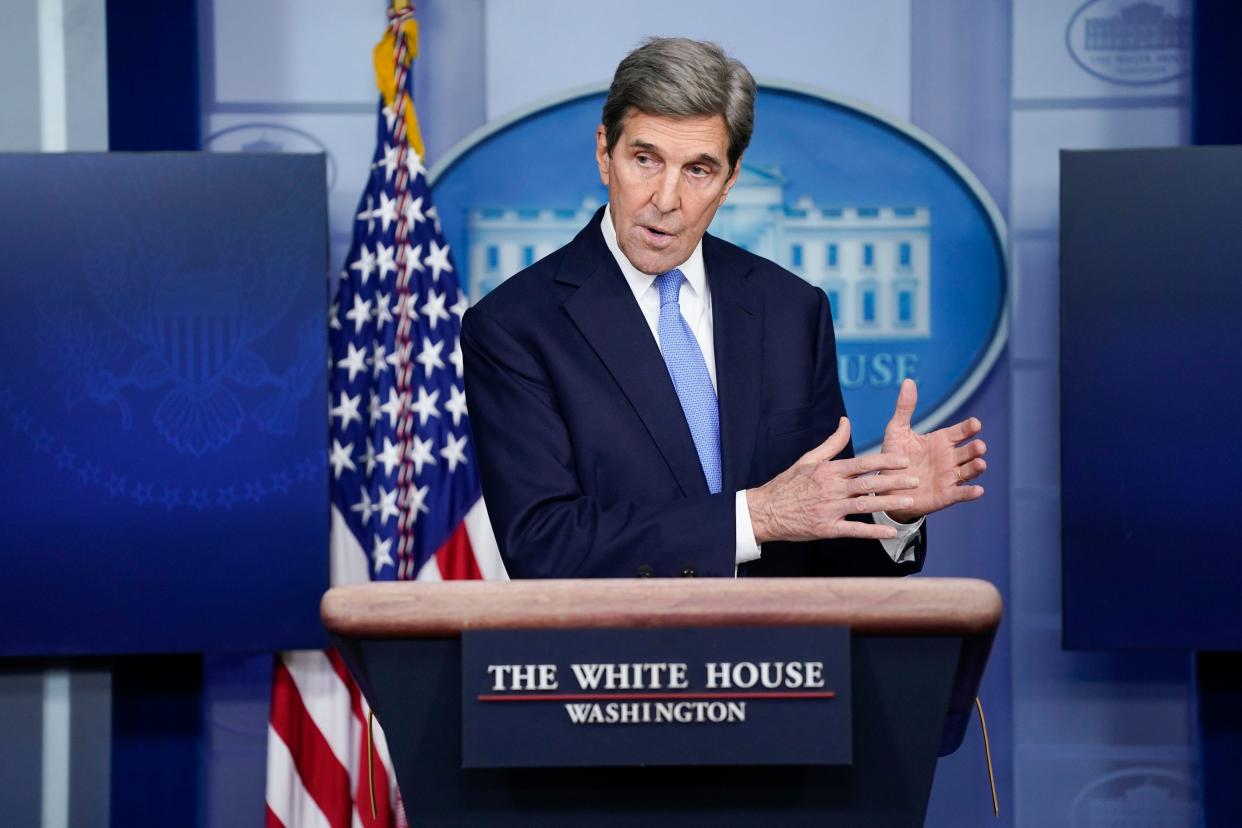
If action isn’t taken to mitigate climate change, scientists warn that the world is on track to warm by about 5 degrees by the end of this century. Such a spike could result in cataclysmic flooding and other natural disasters across the globe as well as erosion of the ozone layer and hazardous air quality.
While phasing out fossil fuel production, Biden is ordering his administration to speed up the boom in solar and wind energy production.
Mindful of criticism from industry executives and congressional Republicans, a key focus of Biden’s action is to create millions of jobs in renewable energy sectors for fossil fuel workers who could lose their livelihoods as a result of the fight against climate change.
“We’re going to do right by them,” Biden said.
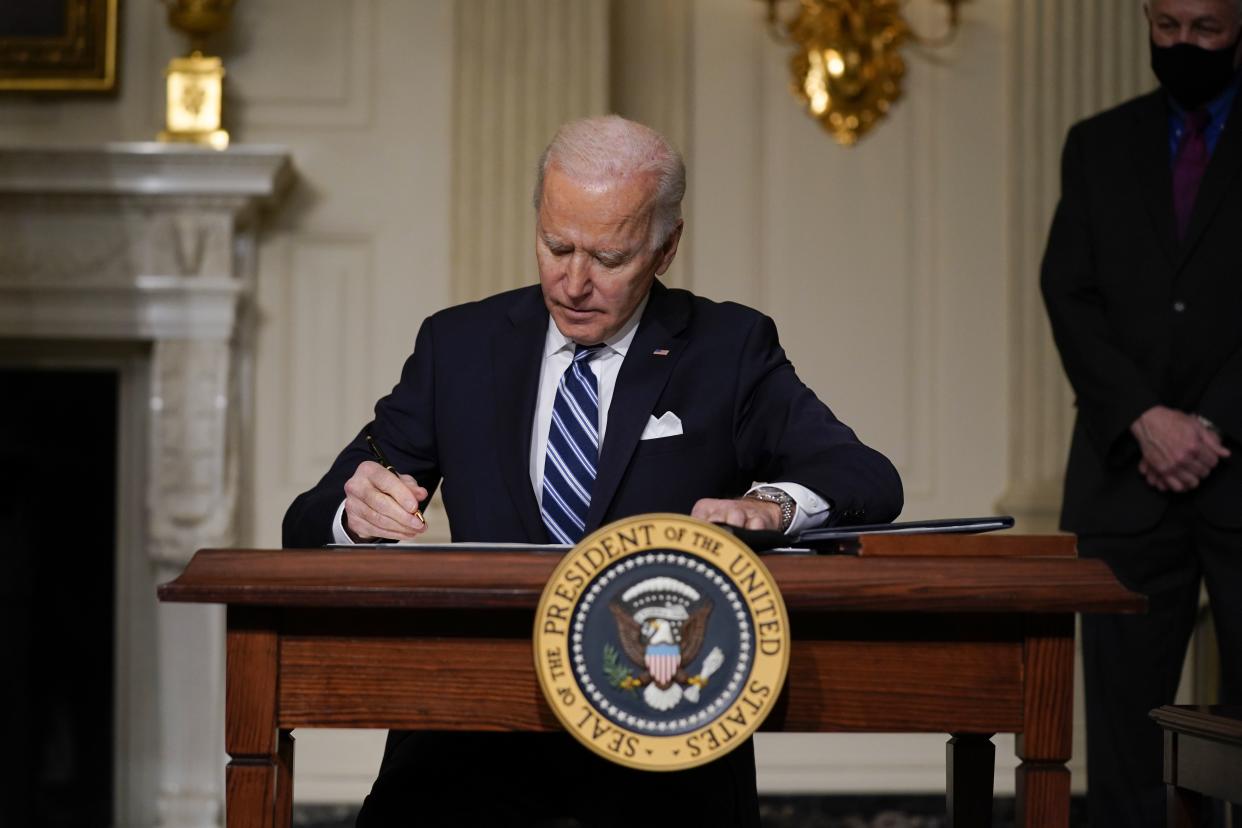
In the pre-announcement briefing, Gina McCarthy, Biden’s national climate adviser, said the administration will provide financial incentives for construction of solar panels, electric cars and wind turbines. One part of Biden’s order, McCarthy noted, is a provision for the U.S. government to transition to an all-electric federal vehicle fleet.
“We’re going to power our economy with clean energy. We’re going to do that in a way that will produce millions of American jobs that are going to be good-paying,” McCarthy said.
Another aspect of Biden’s action is a pledge to spend 40% of its sustainability investments on environmentally disadvantaged communities, such as the so-called “Cancer Alley” outside New Orleans, where residents are suffering from the disease at a disproportionate rate because of poor air quality caused by nearby oil plants.
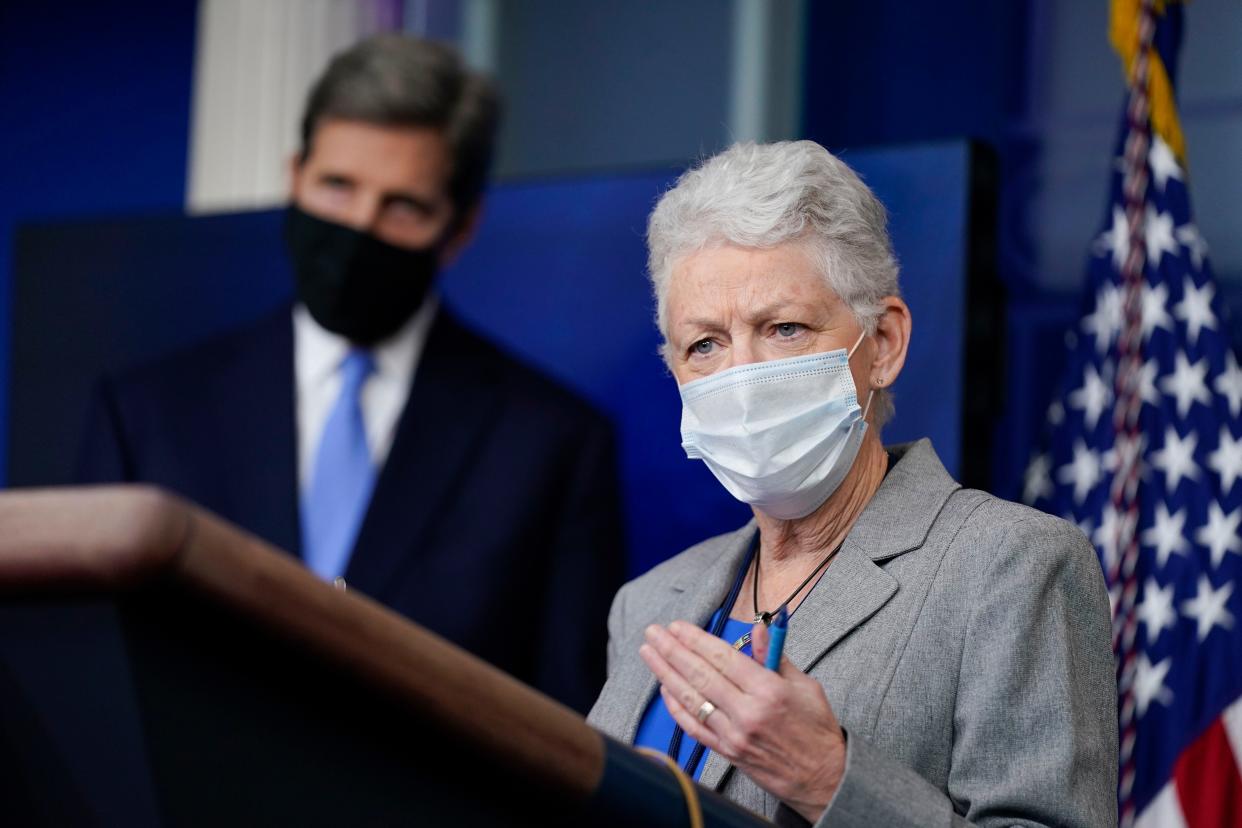
There’s also a carve-out to create a “climate corps,” an apprenticeship program for young people to get involved in conservationist and clean energy workforces.
Progressive proponents of the “Green New Deal” pushed for such incentives for months and praised Biden for including them in his executive orders.
“This is essentially Biden’s FDR moment,” John Paul Mejia, a spokesman for the Sunrise Movement, told the Daily News, referring to the 32nd president who spearheaded the New Deal recovery plan during the Great Depression. “Our movement is celebrating lots of victories today. We’re celebrating a step in the right direction.”
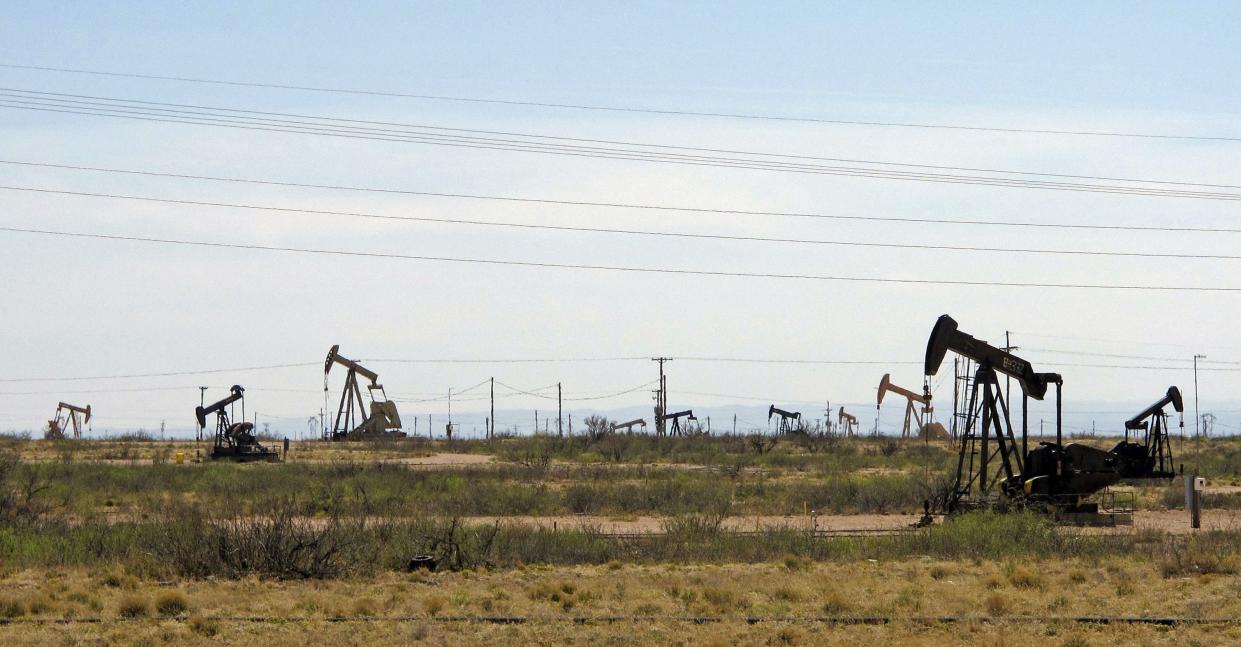
On the other side of the aisle, the reception was withering.
“At a time when millions are struggling due to the COVID-19 pandemic, the last thing Americans need is big government destroying jobs, while costing the economy billions of dollars,” said Washington Rep. Cathy McMorris Rodgers, the top Republican on the House Energy Committee.
With the coronavirus pandemic still raging, White House officials stressed that the Biden administration is only suspending new fossil fuel contracts, leaving existing ones intact for now so as to not cause more job losses.
Still, the Western Energy Alliance, which represents oil and gas drillers in Western states, vowed to challenge Biden’s orders in court.
To achieve some of Biden’s most ambitious climate goals, Congress will likely have to step in, which could prove difficult, as 60 votes are generally required to pass legislation in the Senate and there are only 50 Democrats in the chamber.
Mejia, whose group has worked closely with Rep. Alexandria Ocasio-Cortez (D-N.Y.) and other progressives involved in the climate fight, said Democrats must as a result push to abolish the 60-vote filibuster threshold in the Senate.
“I understand the political reality, but at the same time we can’t compromise with what the science is saying,” he said. “Today is really just the beginning.”
